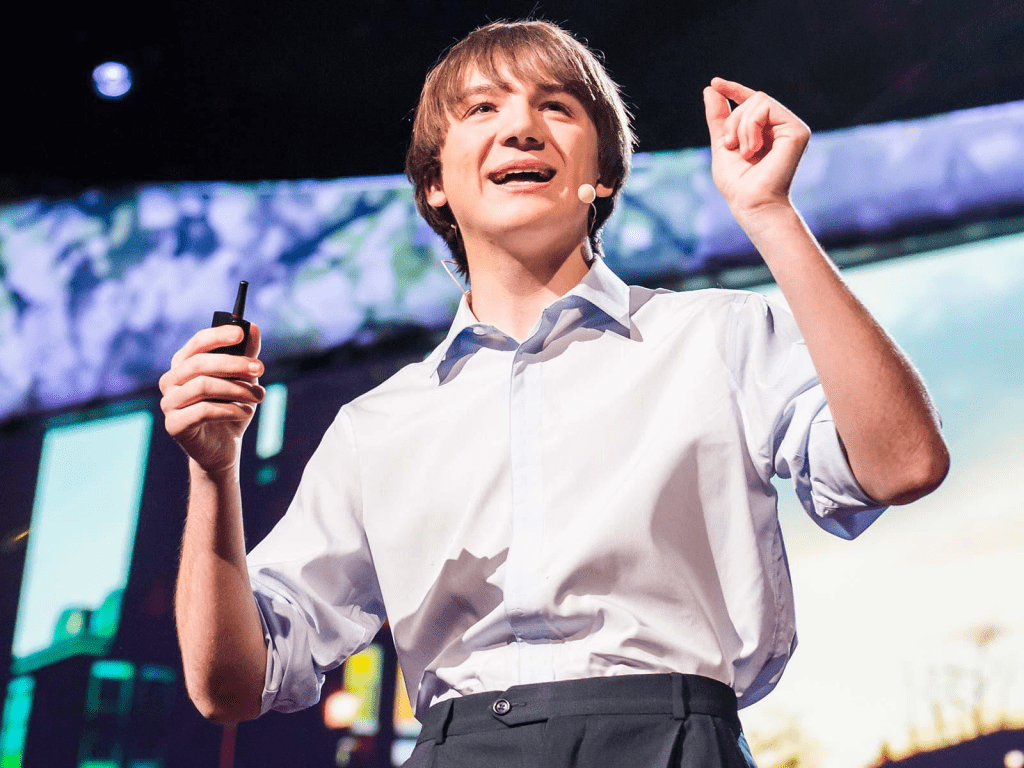At just 15 years old, Jack Andraka wasn’t thinking about high school dances or video games like most teens his age. Instead, he was busy developing a revolutionary test to detect pancreatic cancer early — a disease that is notoriously hard to catch in time. His story is a powerful reminder that innovation doesn’t always come from giant laboratories or world-class universities. Sometimes, it comes from a determined teenager with a personal reason to change the world.
Jack’s motivation was heartbreakingly personal. He had just lost a close family friend to pancreatic cancer, a disease known for its silent progression and low survival rate. The loss left him devastated but also curious. Why was this type of cancer so difficult to detect early? And more importantly, what could he do about it?

A Simple Question Sparks a Life-Changing Idea
Pancreatic cancer is one of the deadliest cancers because it’s often diagnosed in the late stages. There are no early screening methods that are both cheap and reliable. Jack began reading medical journals and teaching himself about proteins, antibodies, and cancer biomarkers. That’s when he discovered mesothelin a protein that is found in high levels in people with pancreatic cancer.

The idea that changed everything was simple in concept: could he create a test that would detect mesothelin in a drop of blood, much like how a diabetic uses a glucose strip?
From this idea, Jack set out to build what would become one of the most groundbreaking innovations in cancer diagnostics a paper strip test that costs just three cents, works in under five minutes, and is hundreds of times more sensitive than current diagnostic methods.
Video:
A promising test for pancreatic cancer … from a teenager | Jack Andraka
From Science Fair to Global Stage
Jack wrote a detailed research proposal and sent it to 200 research labs across the country. Nearly every one of them turned him down. But one lab at Johns Hopkins University saw potential and gave him the opportunity to test his hypothesis.
There, using ordinary materials like filter paper and carbon nanotubes, Jack created a working prototype of his cancer detection strip. The results were astonishing. His test was 400 times more sensitive than existing diagnostic tools and had an accuracy rate of over 90 percent.
Not only did the strip detect pancreatic cancer in its early stages, but it also showed potential for identifying other forms of cancer like ovarian and lung. What began as a science fair project suddenly had real-world implications and the world took notice.

Global Recognition and a Growing Legacy
Jack’s invention quickly gained attention. He won the top prize at the Intel International Science and Engineering Fair and was featured in media outlets around the globe. Scientists and doctors were amazed that a teenager had made such a huge leap in cancer diagnostics using simple, cost-effective materials.
He was invited to speak at TED Talks, appeared on national television, and received awards for innovation and scientific achievement. But Jack didn’t let the fame distract him from his core mission. He remained focused on improving the test, expanding its application, and making it accessible to people around the world especially those in underfunded healthcare systems.

Changing the Way We Think About Science and Youth
What makes Jack’s story even more remarkable is how it challenges the way we think about age and innovation. In a field dominated by PhDs and billion-dollar equipment, he proved that passion, curiosity, and resilience can lead to extraordinary breakthroughs.
Video:
Jack Andraka | CDI 2013.
Jack’s success has inspired countless young people to believe in their ability to change the world. His story has become a rallying cry for youth-driven innovation and a shining example of what happens when education, motivation, and a personal mission align.
The Road Ahead for Early Cancer Detection
Though Jack Andraka’s invention is still in the process of being refined and undergoing further testing before becoming a standard clinical tool, its potential is enormous. Early detection is the key to improving survival rates for many types of cancer, and affordable, accessible tools like Jack’s test strip could transform global health outcomes.
With continued support from the scientific community and advancements in biotechnology, it’s possible that one day soon, a simple, inexpensive strip test could become a routine part of medical checkups worldwide.

Conclusion: Big Ideas Know No Age
Jack Andraka’s story is proof that innovation doesn’t wait for a diploma. At 15, he transformed his grief into a groundbreaking medical solution, showing the world that sometimes the biggest breakthroughs come from the youngest minds.
His work reminds us all that the spirit of discovery lives in those bold enough to ask “why not?” and brave enough to find the answers. Whether you’re a teenager with a big idea or an adult who’s never stopped asking questions, Jack’s story is a reminder: never underestimate what one person no matter their age can accomplish.



